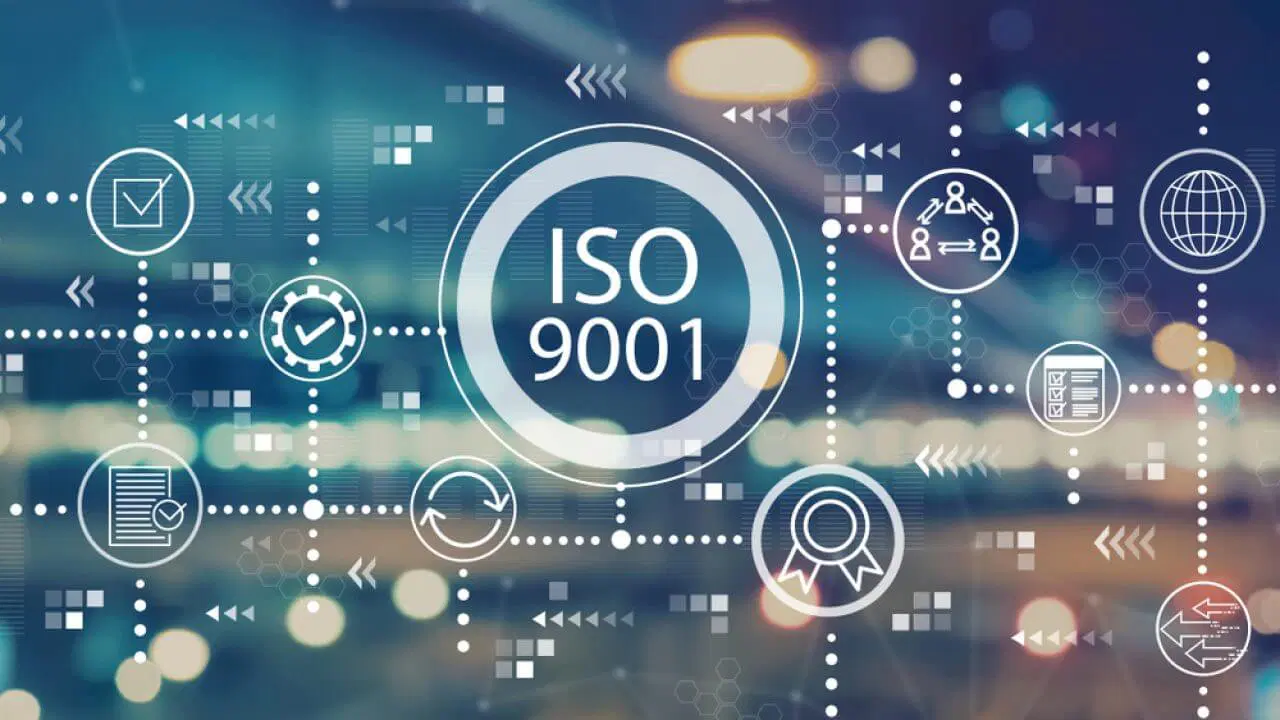ISO 9001 Quality Management System (QMS)
Overview: This standard defines the requirements of a Quality Management System (QMS) when an organization needs to demonstrate its ability to provide products and services that meet customer requirements and applicable legal and regulatory requirements, and aims to enhance customer …
Overview
Overview:
This standard defines the requirements of a Quality Management System (QMS) when an organization needs to demonstrate its ability to provide products and services that meet customer requirements and applicable legal and regulatory requirements, and aims to enhance customer satisfaction through the effective implementation of the system, including continuous improvement processes and ensuring compliance with customer requirements and applicable legal and regulatory requirements.
Benefits:
- Improving the quality of products and services: Helps in setting clear standards for processes, products and services, leading to improved quality and reduced errors.
- Increase customer satisfaction: By continuously meeting customer requirements and expectations, their satisfaction and loyalty are enhanced.
- Raising the efficiency of operations: Helps simplify operations, identify points of improvement, reduce waste and increase productivity.
- Improve internal communication: Encourages effective communication between different departments and levels within the organization.
- Promote a culture of continuous improvement: Emphasizes the importance of continuous review and evaluation of the system for improvement and development.
- Compliance with legal and regulatory requirements: Helps meet legal and regulatory requirements related to quality.
- Gain a competitive advantage: Obtaining ISO 9001 certification can be a strong marketing advantage and enhance an organization’s reputation.
- Facilitating access to new markets: Many customers and government entities require ISO 9001 certification to deal with organizations.
- Increased investment opportunities: Investors may prefer to deal with organizations that have an approved quality management system.
- The importance of ISO quality management:
The importance of ISO 9001 lies in the fact that it provides a globally recognized framework to help with:
- Ensure that high quality products and services are consistently provided.
- Building trust among customers and stakeholders.
- Achieving efficiency and effectiveness in institutional processes.
- Support the sustainable growth of enterprises.
- Contribute to global trade through the standardization of quality.
Target:
ISO 9001 courses are useful for a wide range of individuals, including:
- Quality Managers: Responsible for the development, implementation and maintenance of the Quality Management System.
- Members of quality teams: Participants in the application and follow-up of quality procedures.
- Managers and supervisors at all levels: to understand their role in quality assurance in their departments.
- Employees in different departments: to understand the importance of quality and how to contribute to it.
- Internal and external auditors: to evaluate the effectiveness of the quality management system.
- Consultants: To provide support to organizations in implementing a quality management system.
- Senior management: to understand the importance of the quality management system and its role in achieving the organization’s goals.
- Anyone interested in understanding the principles of quality management and how to apply them in organizations.
After the course
What do students get after completing the course?
After completing a course in ISO Governance, students may receive the following:
- After completing a course in ISO Quality (ISO 9001), students may receive the following:
- Course Completion Certificate: Proving their attendance and acquisition of basic knowledge in the field of quality management in accordance with ISO 9001.
- A thorough understanding of the principles and requirements of ISO 9001: They acquire detailed knowledge about the structure of the standard, its requirements and how to apply them in different organizations.
- Skills in developing, implementing and maintaining a Quality Management System (QMS): Learn the basic steps to establish an effective quality management system, including documenting processes, control procedures and continuous improvement.
- Ability to identify and analyze quality-related issues: They acquire skills in identifying the causes of nonconformities and proposing appropriate solutions.
- Knowledge of quality management techniques and tools: They learn to use different tools and techniques to improve quality such as SWOT analysis, Pareto chart, and cause and effect chart.
- Prepare to conduct internal audits on the Quality Management System (in some advanced courses): Advanced courses may give them the knowledge and skills to conduct audits to ensure compliance with ISO 9001.
- Enhance their career opportunities: Earning a degree in quality management can boost their CV and increase their chances of getting jobs in the areas of quality, operations, and auditing. Professional recognition: Accredited quality management professional certifications may be possible after passing additional exams based on course level.






